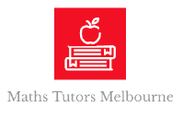|
In all successful teaching and learning relationships, the relationship between the tutor and student must be built on trust and mutual respect. The main focus of the lesson is tailored to one person’s needs, interests and abilities, so the tutors understanding of each of these aspects is paramount. This also provides an opportunity for the tutor to try a variety of teaching techniques that might help the student to understand a topic effectively.
These are the strategies we’re going to discuss on this blog post, and I’m sure it will provide tutors some inspiration, especially when it comes to alternative and sometimes complementary ways of tutoring.
Learn more about our tutoring services here: https://www.mathstutorsmelbourne.com.au/online-tutoring.html Comments are closed.
|
AuthorWrite something about yourself. No need to be fancy, just an overview. Archives
June 2024
Categories |
|
Maths Tutors Melbourne |
